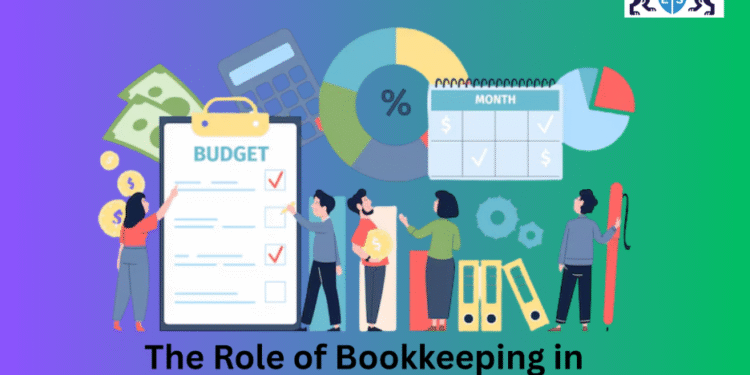Many learners begin their finance journey through the ACA Certificate Level, yet they often pause when they try to understand What is Bookkeeping in real business settings. It is not only about recording numbers. It shapes the direction of decisions, spending plans and future goals. When you prepare a budget, the quality of your bookkeeping determines how strong and clear your financial plan becomes.
In this blog, you will explore how bookkeeping supports every stage of budget planning in a simple and practical way.
How Bookkeeping Shapes Effective Budget Planning
Below are the important ways bookkeeping supports every stage of a strong and reliable budget:
Bookkeeping Creates the Foundation for Accurate Budgets
Planning a budget begins with accurate information. Bookkeeping meticulously and consistently documents daily transactions. You can rely on the figures that back up your financial plan when these records are reliable. Every expense, transaction, and sale enables you to observe your spending patterns. You operate with estimations that don’t accurately represent the situation if your bookkeeping isn’t done correctly. Clear and well-organised financial records are always the first step in creating a solid budget.
Bookkeeping Helps You Track Spending Patterns Over Time
A budget is more than just a written document. Habits are reflected in it. You can see how money flows through your company by keeping a record of your books. You can readily identify patterns when you compare previous months. You can observe which costs stay the same and which increase arbitrarily. This gives you the courage to plan forward. You may eliminate unnecessary spending and strengthen your financial discipline by tracking patterns. You may make informed decisions by using the clarity that bookkeeping provides.
Bookkeeping Helps You Identify Cost-Saving Opportunities
Many companies wish to cut back on wasteful spending in order to enhance their budget. This is made feasible by bookkeeping. You can identify expenses that don’t provide value when your records are clear. You observe mounting utility bills, unused subscriptions, and recurring purchases. These results assist you in protecting your resources and modifying your budget. Saving money is not a guess. Examining thorough and well-organised bookkeeping records is the immediate cause of it.
Bookkeeping Strengthens Cash Flow Planning in Budgets
One of the most crucial components of any financial plan is cash flow. A precise understanding of when money comes into and goes out of the company is necessary for a solid budget. This movement is tracked by bookkeeping. It lets you know when bills are due, when payments are coming in, and when there might be a gap. You carefully arrange your cash flow when you have this certainty. You plan for sluggish times and steer clear of shocks. By consistently displaying the actual cash position, bookkeeping promotes stability.
Bookkeeping Helps You Allocate Resources More Effectively
You may deploy funds with purpose when your budget is founded on correct bookkeeping. You know which areas demand control and which require additional investment. Explicit records demonstrate the resource usage of each department. This aids leaders in making equitable and effective plans. Growth is supported by well-allocated resources. Bookkeeping guarantees that all of your budgetary decisions are supported by actual performance rather than conjecture.
Bookkeeping Ensures Stronger Financial Control
A sound budget aids in discipline and spending control. This is supported by bookkeeping, which provides you with the means to track your development. You can identify areas where you are lagging behind or exceeding your budget by comparing your actual expenditure to your anticipated budget. This enables you to act promptly. Having a reliable and precise bookkeeping system makes financial control easier. It enables you to fix errors before they become more serious problems.
Bookkeeping Makes Performance Reviews More Accurate
After creation, budget planning continues. Regular reviews keep it going. You may confidently gauge your success with the aid of bookkeeping. You can compare your performance to your objectives after your records are clear. You can see what is effective and what needs to be improved. This makes it easier for you to modify your budget. Because bookkeeping offers accurate and comprehensive information, it facilitates better decision-making.
Bookkeeping Builds Confidence for Business Growth
A carefully thought-out budget steers a company towards sustained expansion. This path is aided by bookkeeping, which provides precise data, robust management, and improved forecasting. Having well-organised financial records helps you make better decisions. You make prudent investments, steer clear of financial hazards, and clearly plan for expansion. Your budget can confidently steer your firm because of the solid foundation that bookkeeping provides.
Conclusion
Clear bookkeeping strengthens every part of budget planning and improves financial decisions. It helps you forecast, track patterns, control spending and allocate resources with confidence. When you understand this connection, your budgets become more realistic and more effective. To deepen your knowledge and explore financial concepts with clarity, consider learning with MPES Learning, where your understanding of bookkeeping and budget planning can grow with expert support.









































